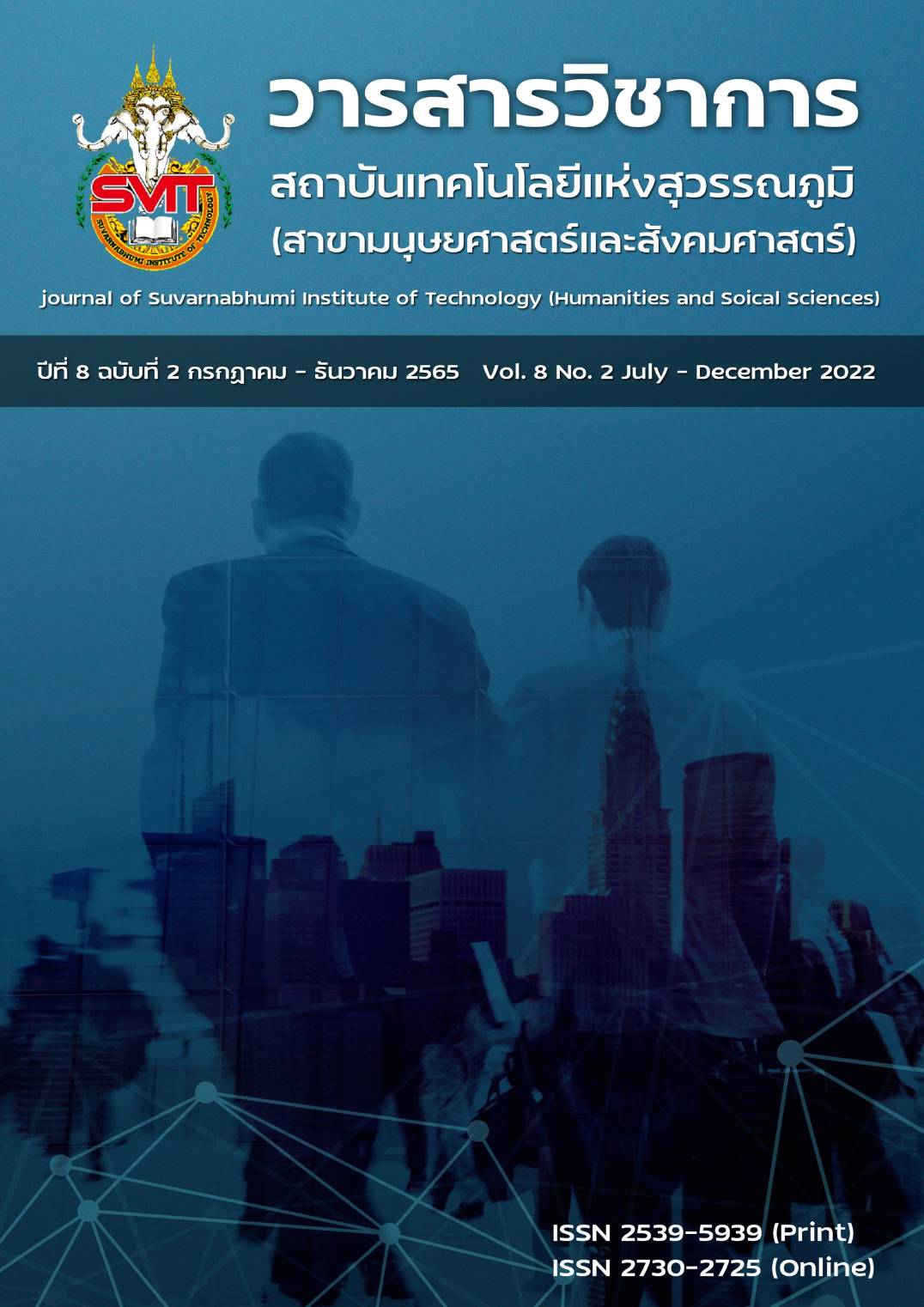THE STUDY ON APPROACHES TO INCREASING OCCUPANCY RATE FOR HOTEL, A CASE STUDY ON QUEEN HOTEL PATTAYA
Keywords:
Hotel, Hotel Occupancy Rate, TravelAbstract
The objective of this research is The study on approaches to increasing Occupancy Rate for hotel , a case study on Queen Hotel Pattaya in this study. The researcher used a form of qualitative research starting from literature review and related research (Literature review) which has content concept about Theoretical concepts related to hotel business. Concept and importance of hotel occupancy management Factors affecting hotel customer stay such as internal factors, external factors, etc. SWOT theory concepts , other factors, then conduct qualitative research, in-depth interviews with hotel operators or hotel management service providers. On a 3-star level with an occupancy rate of 90% or more, and collecting data until the data is saturated and at least 6 Thai and 6 ASEAN tourists until the date is saturated.
The results of the research found The study on approaches to increasing Occupancy rate for hotel , a case study on Queen Hotel Pattaya. Divided into 4 areas : 1. Strengths : near the sea, convenient transportation near attractions The customer group is East Asian people. Central Asians, Westerners and Europeans. The marketing aspect is seasonal room rates. Creating content through online media Increasing booking channels through online media and organizing promotional promotions. The development aspect is to increase the check-in point. Modernizing the hotel online marketing Increasing language skills for employees
References
กระทรวงการท่องเที่ยวและกีฬา. (2562). สถิตินักท่องเที่ยวภายในประเทศ. Retrieved from https://www.mots.go.th/more_news_new.php?cid=411
กรีดิสกู๊ดส์ (Greedisgoods). (2018). PESTEL Analysis คือ อะไร (การวิเคราะห์ปัจจัยภายนอก). Retrieved from https://greedisgoods.com/pestel
ขนิฐา (Kanittha). (2561). วอนแก้ปัญหาโรงแรมเถื่อน ชี้ระดับ3ดาวกระทบหนัก. Retrieved from https://www.thaihotelbusiness.com/news-
ดุษฎีวัฒน์ แก้วอินทร์. (2562) พฤติกรรมการตัดสินใจของผู้ใช้บริการโรงแรม ในเขตจังหวัดเลย. วารสารธาตุพนมปริทรรศน์, 3(2), pp.1-10.
ธนัญญา ลีวงศ์วัฒน์ และณัฐกันนภัส โสมทองมี (2559). รายงานการปฏิบัติงานสหกิจศึกษา หนังสือแนะนำและสิทธิประโยชน์การสมัครสมาชิกสมาคมโรงแรมไทย และมูลนิธิมาตรฐานโรงแรมไทย.กรุงเทพฯ: มหาวิทยาลัยสยาม.
มาโนช หนองใหญ่ และ ยุทธศักดิ์ สุภสร. (2563). ท่องเที่ยว พัทยา ซึม หวังตลาดดาวรุ่ง “'อินเดีย” กู้ยอด. Retrieved from https://www.bangkokbiznews.com/news/detail/856068
รุ่งนภา สารพิน. (2562). เทรนด์ท่องเที่ยว 2020. Retrieved from https://www.thaipost.net/main/ detail/48269
วีรวัลย์ ปิ่นชุมพลแสง (2561). การศึกษาปัจจัยการตัดสินใจเลือกเข้าพักโรงแรมและรีสอร์ทของประเทศไทยตามแนวชายฝั่งทะเลอ่าวไทยตะวันตก. วารสารการจัดการ สมัยใหม่, 13(2), 35-50.
Jiřina Jenčková & Josef Abrhám. (2016). Smart overbooking in the accommodation facilities in the Czech Republic. Journal of International Studies, 9(1), 265-275.
PSA Service & Supply. (2019). ระดับดาวของโรงแรม มาตรฐานโรงแรมวัดจากอะไรบ้าง. Retrieved from https://psasupply.com
Downloads
Published
Issue
Section
License
Copyright (c) 2022 Suvarnabhumi Institute of Technology

This work is licensed under a Creative Commons Attribution-NonCommercial-NoDerivatives 4.0 International License.
บทความที่ได้รับการตีพิมพ์เป็นลิขสิทธิ์ของวารสาร Sarasas Journal of Humanities and Social Science ข้อความที่ปรากฏในบทความแต่ละเรื่องในวารสารวิชาการเล่มนี้เป็นความคิดเห็นส่วนตัวของผู้เขียนแต่ละท่านไม่เกี่ยวข้องกับสถาบันสารสาสน์เทคโนโลยีแห่งสุวรรณภูมิแต่อย่างใด ความรับผิดชอบองค์ประกอบทั้งหมดของบทความแต่ละเรื่องเป็นของผู้เขียนแต่ละท่าน หากมีความผิดพลาดใดๆ ผู้เขียนแต่ละท่านจะรับผิดชอบบทความของตนเองแต่ผู้เดียว



